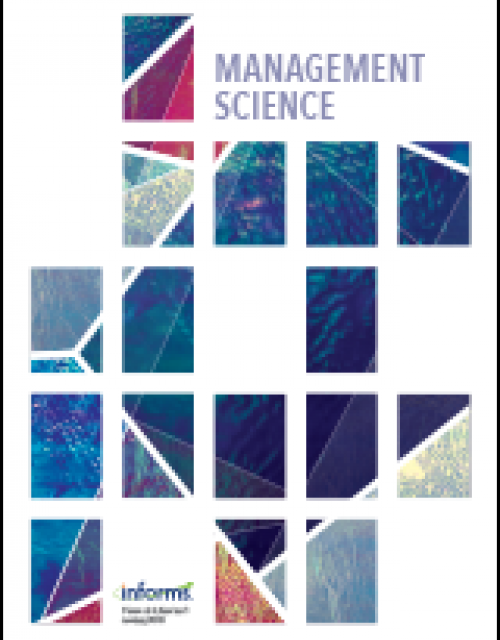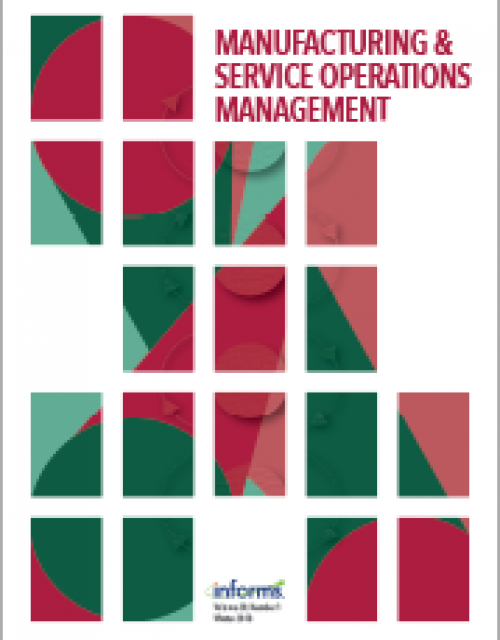Publication records
Subject(s)
Economics, politics and business environment
Keyword(s)
sunk cost effect, sunk cost fallacy, endowment effect, cognitive ability, fluid intelligence, crystallized intelligence, reflective thinking, online experiment, online survey, psychological scales, scale validation, Raven’s progressive matrices, international cognitive ability resource, cognitive reflection test, openness
JEL Code(s)
D91, C83, C90
We provide experimental evidence of behavior consistent with the sunk cost effect. Subjects who earned a lottery via a real-effort task were given an opportunity to switch to a dominant lottery; yet 23% chose to stick with their dominated lottery.The endowment effect accounts for roughly only one third of the effect. Subjects’ capacity for cognitive reflection is a significant determinant of sunk cost behavior.We also find stocks of knowledge or experience (crystallized intelligence) predict sunk cost behavior, rather than algorithmic thinking (fluid intelligence) or the personality trait of openness. We construct and validate a scale, the “SCE-8”, which encompasses many resources individuals can spend, and offers researchers an efficient way to measure susceptibility to the sunk cost effect.
Volume
186
Journal Pages
318–327
Subject(s)
Finance, accounting and corporate governance
Keyword(s)
Association tests, non-random sampling, equity, returns, distribution matching, multiple imputation, resampling
JEL Code(s)
M41
Volume
26
Journal Pages
772–814
Subject(s)
Ethics and social responsibility; Finance, accounting and corporate governance
Keyword(s)
board of directors, codetermination, corporate governance, climate governance, climate change, sustainability
The codetermination principle – as seen in the German corporate governance system – provides a solid foundation for achieving climate and sustainability goals. The involvement of employees needs to be coupled with more diversification parameters used for appointing non-executive directors as well as building sustainability expertise and proper incentives for acting sustainably. The Climate Governance Initiative in Germany among others can help non-executive directors in becoming stronger and even more capable sustainability ambassadors within their companies.
ISSN (Print)
0015-6914
Subject(s)
Economics, politics and business environment
Keyword(s)
Overinvestment, capital budgeting, resource allocation, information asymmetry, optimal contracting
The literature on resource allocation under adverse selection has focused on models in which the resource being allocated is such that the privately informed agent always prefers more of it to less. We analyze a firm’s optimal resource allocation mechanism when this assumption does not hold and show that the resulting mechanism has a number of novel characteristics. For example, first best may be achievable even with nontrivial information asymmetry; when first best cannot be achieved, it is always optimal to overinvest relative to first best, and the most efficient agent may not earn rents, even when a less efficient agent does.
© 2020, INFORMS
Volume
67
Journal Pages
2657–3320
Subject(s)
Management sciences, decision sciences and quantitative methods
Keyword(s)
Intermediary problems, mechanism design, internet advertising, extensive form games, second-price auction, multi-stage intermediation
We consider a setting where online advertisers seek to acquire impressions from an advertising exchange through a multi-tier network of intermediaries, and study the mechanisms offered by the ad exchange and intermediaries when the advertisers’ values are private. As opposed to traditional manufacturer/retailer settings, intermediaries in display advertising auction off contingent goods which they only purchase when downstream buyers have signaled interest. Thus motivated, we determine how intermediaries should bid on behalf of their customers in the mechanism of an upstream intermediary and study how the structure of the intermediation network affects the profits of its participants. We provide a game theoretic model to study the mechanisms offered by the ad exchange and intermediaries within a practically relevant class of mechanisms. We characterize a subgame perfect equilibrium of the game among intermediaries and the seller, and show that the equilibrium mechanisms have a simple and appealing structure: intermediaries bid the virtual value associated with the maximum downstream report in the upstream intermediary’s mechanism, whenever this quantity is positive. We show that economic incentives are not necessarily aligned along the network and the position in the intermediation network has a significant impact on the profits of the intermediaries. Besides, we analyze the impact of different network structures on the seller’s revenue and investigate whether intermediaries have an incentive to merge horizontally or vertically.
Copyright © 2020, INFORMS
Volume
23
Journal Pages
714–730
Subject(s)
Entrepreneurship; Strategy and general management
Keyword(s)
innovation, innovation practice, targeted innovation, incremental innovation, disruptive innovation, accelerator, entrepreneurship, open innovation, venture capital, company builder, stage gate, acquisitions, joint ventures, hackathon, corporate bootleg
Subject(s)
Human resources management/organizational behavior
Keyword(s)
Automation, communication, team interaction, leadership
Automation Surprise or Ambiguous Cockpit Information manifests itself as a miscommunication between man and machine and may lead to serious incidents and accidents. Focusing on factual communication between crew members as well as using training scenarios that specifically address the lesser known, less critical malfunctions may prepare pilots for dealing with losses in automation.
With permission of the German Armed Forces Aviation Office (Luftfahrtamt der Bundeswehr)
Journal Pages
18–22
Subject(s)
Diversity and inclusion; Economics, politics and business environment; Health and environment; Information technology and systems; Management sciences, decision sciences and quantitative methods; Strategy and general management; Technology, R&D management
Keyword(s)
Decision science, Artificial Intelligence, cognitive psychology
From pandemics to populism, new weapons to the rise of artificial intelligence, and gaping inequalities to climate change, humanity faces unprecedented challenges that threaten our very existence. In FRAMERS: Human Advantage in an Age of Technology and Turmoil, the authors offer a reason to be optimistic: humans have a unique ability to frame—or think in mental models—and so come up with solutions that meet our moment in history.
To frame is to make a mental model that enables us to see patterns, predict how things will unfold, and make sense of new situations. Frames guide the decisions we make and the results we attain. People have long focused on traits like memory and reasoning leaving framing all but ignored. But with computers becoming better at some of those cognitive tasks, framing stands out as a critical function—and only humans can do it. This book is the first guide to mastering this innate human ability.
Framers shows how framing is not just a way to improve how we make decisions in the era of algorithms—but why it will be a matter of survival for humanity in a time of societal upheaval and machine prosperity.
To frame is to make a mental model that enables us to see patterns, predict how things will unfold, and make sense of new situations. Frames guide the decisions we make and the results we attain. People have long focused on traits like memory and reasoning leaving framing all but ignored. But with computers becoming better at some of those cognitive tasks, framing stands out as a critical function—and only humans can do it. This book is the first guide to mastering this innate human ability.
Framers shows how framing is not just a way to improve how we make decisions in the era of algorithms—but why it will be a matter of survival for humanity in a time of societal upheaval and machine prosperity.
Pages
272
ISBN
978-0593182598
Subject(s)
Ethics and social responsibility; Health and environment; Information technology and systems
Keyword(s)
misinformation, health information, disinformation, social media, facebook, oversight board, freedom of expression, pandemic, covid-19
The article examines the first decisions issued by Facebook's newly established Oversight Board that deal with the exacerbating problem of health misinformation. In this context, it is questioned whether the Board's applied standard of 'imminent harm' is suitable for the problem at hand given the viral proliferation of potentially consequential false and misleading information about public health policies amid a pandemic.
Subject(s)
Diversity and inclusion; Human resources management/organizational behavior; Strategy and general management
Keyword(s)
Career change, COVID-19 resources, leadership development
Taking on a substantial new role without a change in title or authority is hard, but there are ways to manage this transition.

